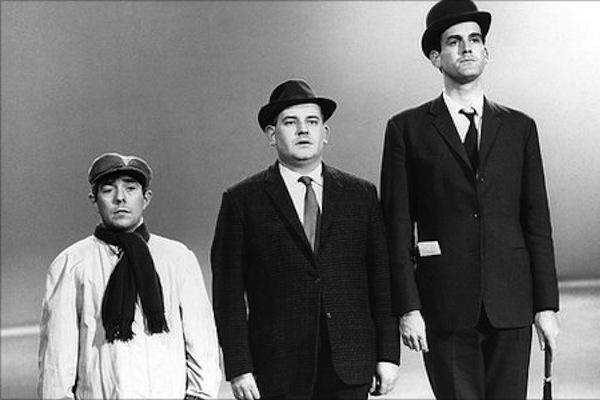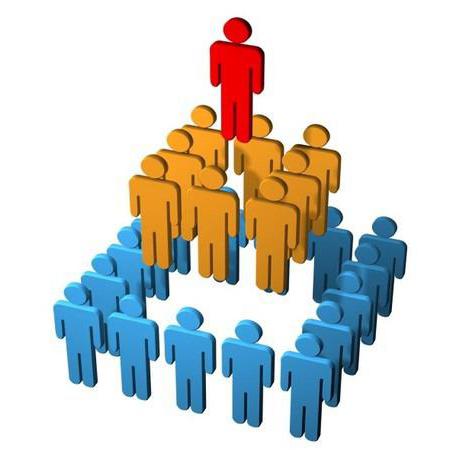A person, being a part of society, is inevitably covered by a steady raid of social statuses that determine his duties and privileges. Some of them can be eliminated by changing to more suitable ones, while others will pursue their possessor until death. For example, having been born a boy, a child cannot somehow change this fact, remaining a male individual throughout his life. Each person has a whole bunch of social statuses that belong to different groups and may vary depending on the situation. The role of these “labels” is fundamental in modern society.
Social status. Concept. Kinds
Naturally, labels are assigned differently. Therefore, social statuses are divided into prescribed and achieved. A person receives the prescribed status with birth, having almost no opportunity to change it throughout life. The individual makes no effort to obtain such a social status. Examples: gender, race, title of nobility, age, etc. From early childhood, people are taught to comply with the prescribed status: “a man should not cry,” “a girl must be beautiful,” and other behavioral stereotypes are designed to grow a harmonious member of society.
Personal status is the result of efforts to obtain it. Often any kind of social status reflects the merits of a person in a certain area. For example: master of sports, candidate of sciences, professor, husband, alcoholic, ballerina, etc. Often, just one of the achieved statuses is fundamental in a person’s life, most fully reflects his aspirations and talents.
Group social status
Not only individual people, but also entire groups of people have their status in society. Castes, estates, all kinds of associations and professions are by no means equal - each of them occupies its own unique niche in the hierarchy. No matter how much modern cultural and political figures shouted about equality, this is just a sweet lie, designed to hide the harsh reality. After all, no one will argue that the social status of miners is immeasurably lower than that of politicians or businessmen.
As soon as a person becomes a member of a group, he immediately receives a lot of rights and obligations inherent in it. For example, when he enters the police service, an employee receives a number of privileges that are not available to ordinary citizens, but this status obliges him to act if he sees an offense, even if he is not in the service. To this he is bound by the status of a social group. Many groups are at the same level in the hierarchical ladder, while some are unattainably high for mere mortals. At the same time, the benefits that the representatives of the profession or association bring to society do not affect the rank in it.
Individual social status
Not only groups and associations of people have their own rank and weight. Each of them has its own ranking system, which determines the relationship between people. School experience teaches us that in every class there is a bully, a nerd, an excellent student, a joker, a leader - all this is the social status of the individual. However, each student has more than one status. Coming to school, children are primarily students, but at home each of them also becomes a son, sister, nephew, etc. During life, everyone tries on a huge number of roles, the social status of a person constantly changes depending on the team, which the person turned out to be, and his personal qualities.
In different circles, the same individual may not be in the same position.A strict and powerful boss, holding his subordinates in an iron fist, may be under the heel of a strict wife. It happens, and vice versa, when a weak and indecisive person, unable to fend for himself in a team, turns into a ruthless tyrant, barely crosses the threshold of his house. If the status of a person in different groups varies significantly, then an internal contradiction arises, which often becomes a cause of conflict.
Role conflict
In those cases when a person occupies a high rank in one group, and in the other is at the very bottom of the hierarchical ladder, conflict is inevitable. It can be internal when an individual silently experiences discomfort, or can develop into a collision with colleagues. Examples of role-playing conflicts are ubiquitous, for example, when an older person is an errand boy with a young boss. Or, when this boss rests with friends who treat him with some neglect, not at all like his subordinates.
If a person’s social status is high, then he will do his best to preserve him. Naturally, there will always be people who are not happy with their rank, who want to rise higher, gain more weight in society. This creates competition within the group, which allows the most fit and strong members of society to climb up.
Resolution of internal conflicts
Often, the contradictions between the roles lead to an internal confrontation, which takes a lot of time and effort. For example, during a natural disaster, the rescuer will first go to save his own family, obeying the roles of parent and spouse. And only after he is convinced that his family is safe, the time will come to fulfill his official duties.
This also happens with merchants selling alcohol or other drugs. As a parent, he does not want his child to be poisoned by this muck, but as a businessman this man is not able to withstand the sweet call of profit. Types of social statuses differ in their importance for the owner. The main thing is to choose the role that is the main at the moment, thereby destroying impending internal contradictions at the root.
Family social status
Not only a single individual takes his rank in the social hierarchy, each family also has its own status. Usually the position of the cell of society depends on material well-being, but this is far from always the case. The family of a military man or official has a special position in society, even if they are not burdened with wealth. In those countries where noble titles or castes have been preserved, membership in a noble dynasty decides a lot.
In ancient times, wealthy merchants often entered into marriages with representatives of the poor, but titled kind, in order to share with them the high social status of the family. Such a far-sighted move opened for the wealthy merchant many doors closed to commoners.
The impact of social status on the individual
Roles in society are rarely superficial. Except for those types of social statuses that are assigned for a short period of time: a passer-by, a patient, a buyer.

Basically, belonging to a certain role leaves a deep imprint on a person’s entire life. A particular influence is exerted by the status to which the subject attaches the greatest importance. For example, a professor, musician, athlete, serial killer, etc. Having assumed a serious role, a person gradually begins to change, acquiring character traits and skills necessary for its implementation.
A doctor, if he has worked in this area for a long time, evaluates people quite differently from a policeman. The surgeon will evaluate a person according to their parameters, formed by his professional activity. So the investigator, having worked for years among inveterate criminals, will never be the same.
The expectations of others
Taking on a role, we are in some way becoming its hostages. Since the social status of the person is fixed, people around him know what to expect from this person. The stereotype sticks like a tick, not allowing you to take a single step to the side. After all, as soon as your behavior goes beyond the expected, pressure will begin to return the lost sheep to the herd. An excellent tool to keep people on track is the reward and punishment system.
Unfortunately, some types of social status are inevitable. There is no way to get rid of the status of a child, old man, man or woman. Since childhood, girls have been taught how to clean, cook, manage, take care of themselves, instill the idea that they can become a person only by successfully marrying. If the young lady wants to become a star of boxing or car racing, then she will immediately encounter misunderstanding or ridicule, few will take her dream seriously. So it is with age. No one will take seriously the child’s attempts to do business, and an old man trying to get acquainted with a young girl will cause disapproval of others.
The value of social status
Today it is very fashionable to talk about how everyone around is equal, that everyone has the same rights and duties. Of course, this is not true. Until now, social status is decisive in the life of each member of society. Examples of this are common.

Therefore, all types of social statuses - both group and personal - are relevant today as much as a thousand years ago. However, do not forget that society hangs labels on you, so they only have power where people are. Correspondence to social status is only one of the quirks of the modern world, and not the monumental law of the universe. You can only play your part without getting used to it. From childhood we are taught that achieving prestige and high status in society is a thing of paramount importance. But it is not necessary to accept such rules of the game. A person in a low position in society will go to jail for trifling theft, while a banker can rob millions of people, escaping with only a formal warning.






